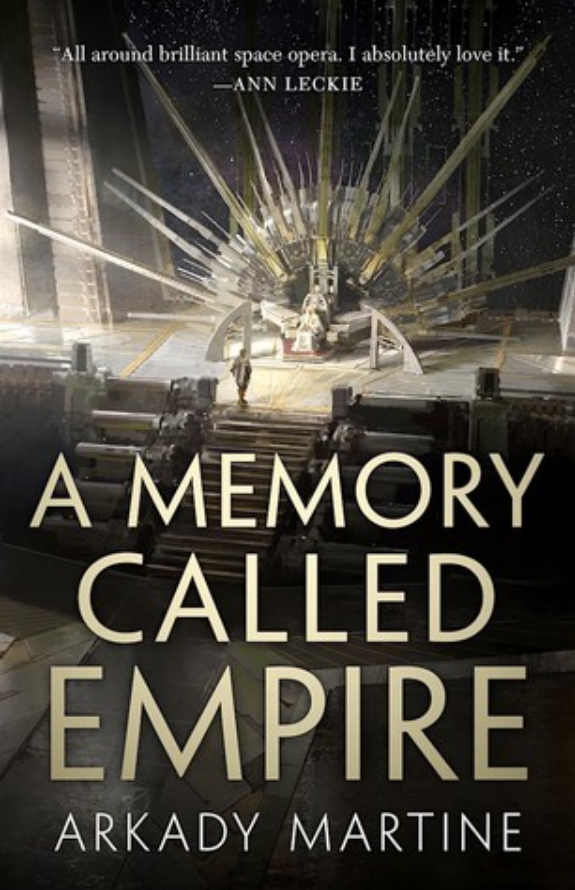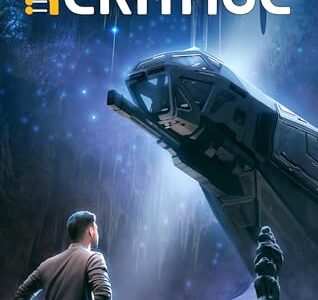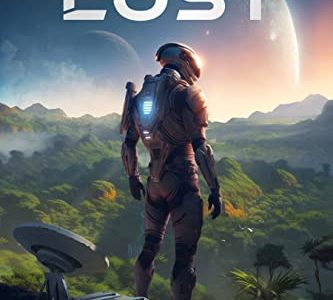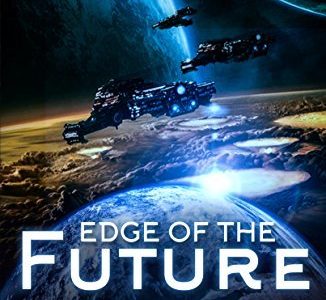Pros
- Story universe feels fuller and richer than other science fiction stories
- Execution of the mystery and unraveling of the former ambassador’s death reveals a larger, more engaging story
- Background and history of the Teixcalaani provided throughout the story that is interesting
- Great execution of creating a cultural context for readers
Cons
- Story emphasizes the mystery and politics more than science fiction elements like spaces battles, aliens, or technology
A Memory Called Empire by Arkady Martine is a mystery that unravels a story that will engage and intrigue readers, leaving them eagerly awaiting the sequel.
Plot
Mahit arrives to the Teixcalaani Empire to discover that the former Lsel ambassador, Yskander, is dead, and his imago device, a memory recording device, is useless. Mahit must discover what is going on in order to solve the mystery surrounding Yskander’s death.
Characters
Mahit Dzmare is sent as an ambassador from Lsel Station to replace the former ambassador to the Teixcalaan empire. Three Seagrass is her liaison to the Teixcalaani culture and empire.
Setting
The story takes place at the heart of the Teixcalaani Empire.
A Memory Called Empire Review
I wasn’t too intrigued by the premise of A Memory Called Empire, the first book in the Teixcalaan series, when I began reading. And my interested wasn’t initially piqued because I was expecting more science fiction elements: spaceships, aliens, or technology.
My initial impression was that this was a mystery story whose only relationship to science fiction was that the protagonist, Mahit, traveled on a space ship from Lsel Station to the Teixcalaan empire.
I’m happy to report that as I read the story, I became more intrigued and interested in the Teixcalaan culture. Martine’s development of the culture: the names, the social behaviors, and especially the representations of language and poetry, all served to make this story feel alive and realistic.
Many science fiction writers write aliens as monsters or enemies, emphasizing aspects such as size, intelligence, or technology. But few science fiction writers take the time to create such a complex society. The language used by the Teixcalaan reminds me of the Star Trek episode “Darmok,” where Picard is abducted by these aliens who speak through metaphor.
Like these aliens in the “Darmok” episode, the Teixcalaani use metaphor and literary references in order to impart meaning. It’s probably not too different from what writers today do in their stories—a reference to Shakespeare here or an homage to Beowulf there—but the Teixcalaani culture and communication is infused with metaphoric language and literary references.
While much of the references didn’t quite resonate with me as a reader, they did serve to provide context, and Mahit’s love for the culture and its language and poetry isn’t too different from any one of us who love to read or appreciate good wordplay.
Admittedly, the story does take some time to develop because of the world-building, but as Mahit untangles the mystery of Yskander’s death, the story becomes more and more intriguing, and the revelations promise some interesting options, perhaps providing readers with the promise of more science fiction elements in the story.
I was a little disappointed not to see more science fiction given that Mahit is an ambassador serving in the greatest space empire in the story. There’s not much emphasis on the technology or other, more common science fiction elements like aliens or exotic technologies. But as the story progressed, my disappointment faded and was replaced with interest.
With such a wonderful description of the Teixcalaan culture, Arkady Martine establishes a foundation in A Memory Called Empire that should allow for richer, fuller sequels to explore the actions and consequences of the Teixcalaan people in a universe that’s likely to be more crowded.



